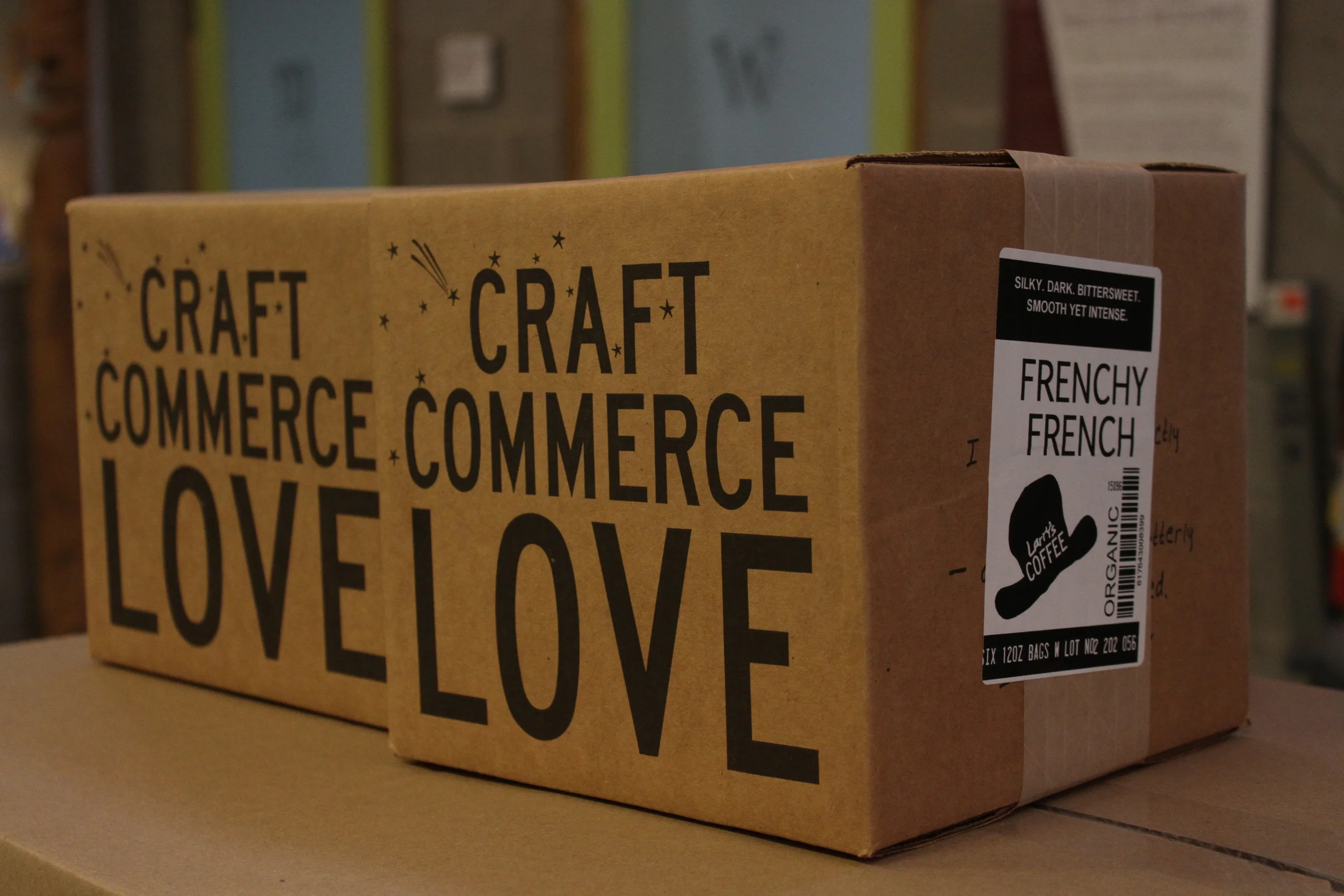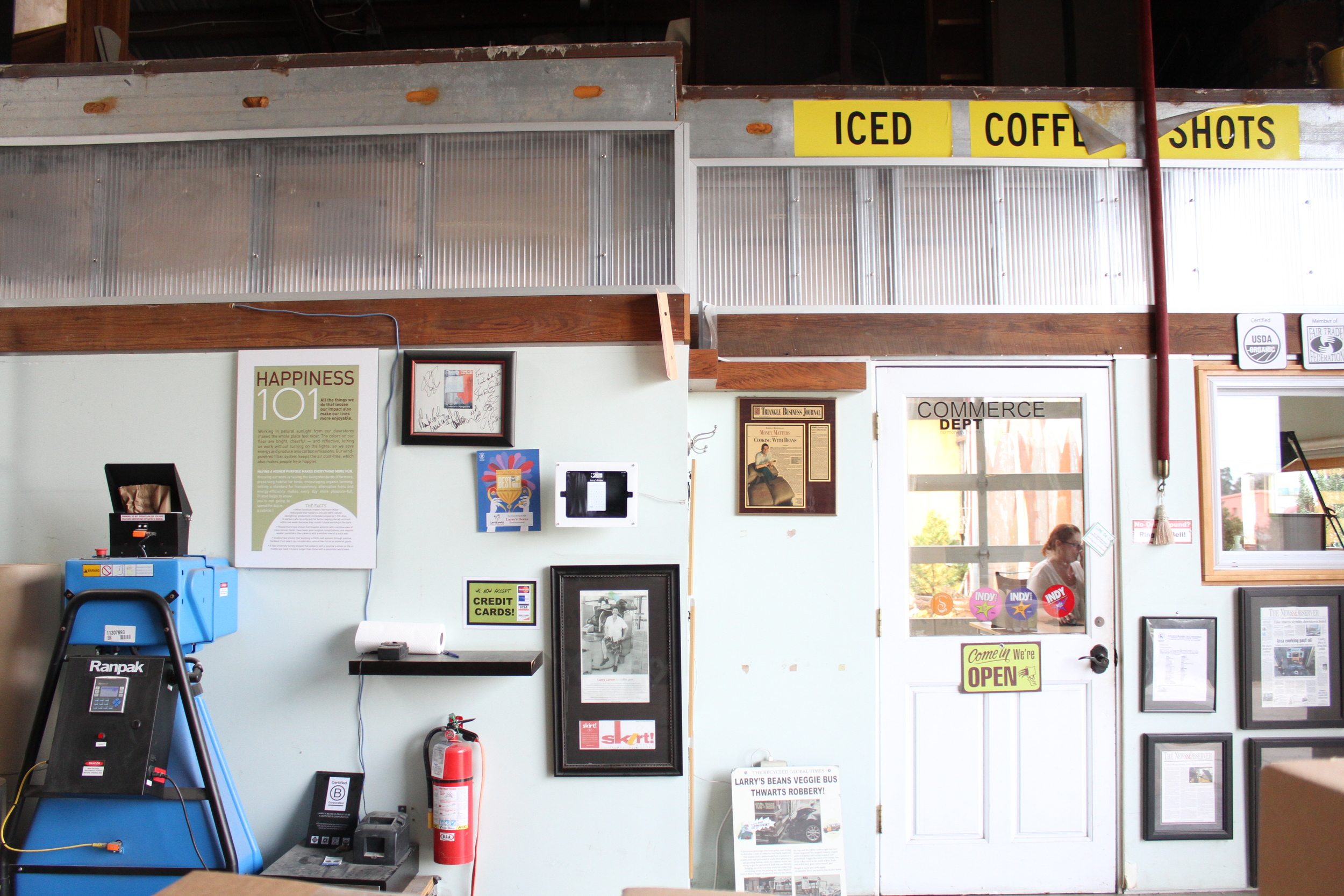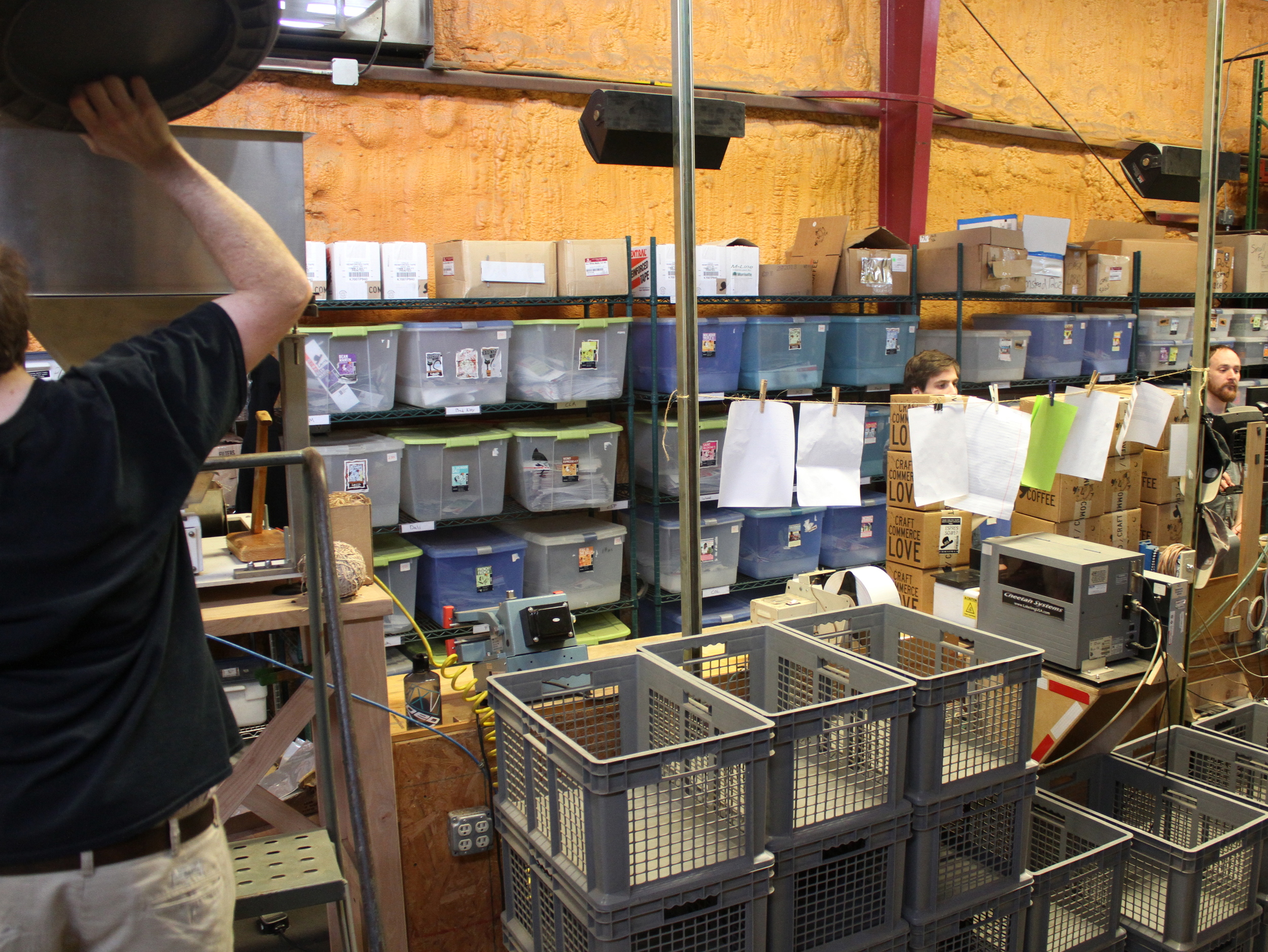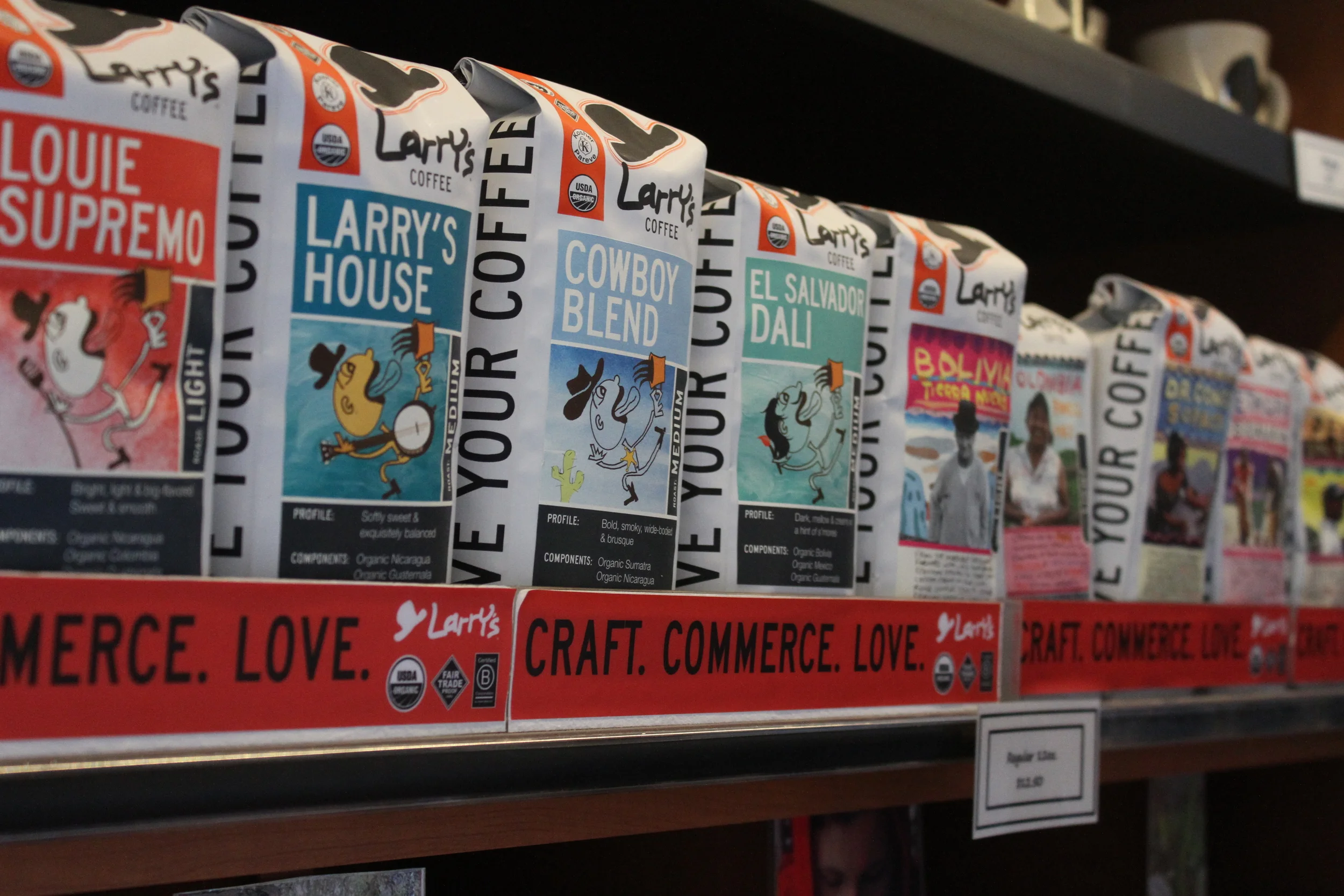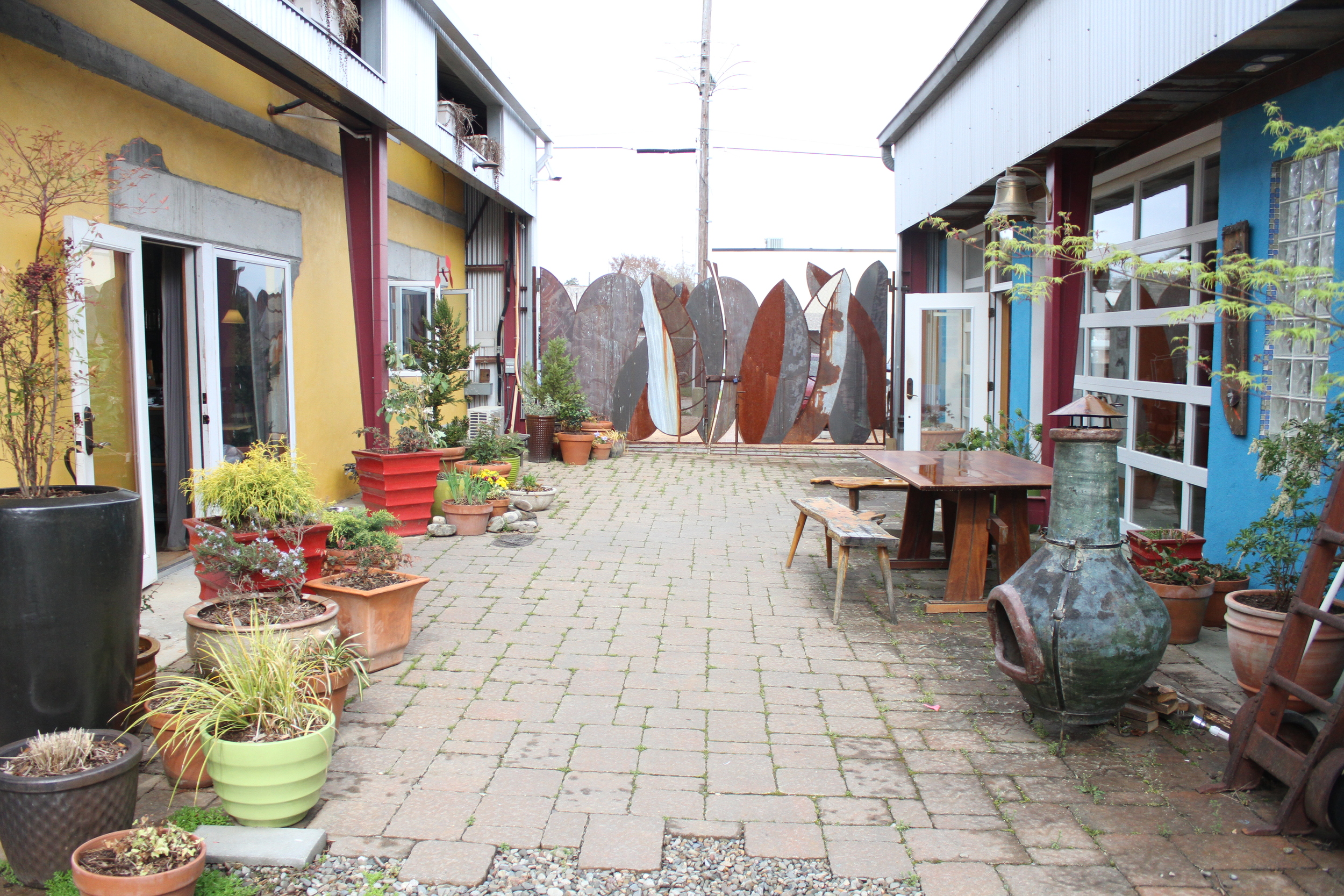Local Vendor Feature: Larry's Coffee
Nathan Phillips (left) and Larry Larson of Larry's Coffee
The familiar scent of donuts emanates from Larry’s Coffee truck and fills Triangle streets with a little sweetness. The vehicle has traditionally run on leftover vegetable oil from local fryers. Larry’s commitment to energy alternatives extends beyond roadways and into the company’s Raleigh headquarters – a virtual depository of sustainable initiatives.
Out front, an organic community garden invites visitors to pick from an impressive display of fresh fruits and veggies. During peak season, the garden yields upwards of ten pounds of produce a day, which neighborhood homeowners are always welcome to sift through. Vermicomposters along the property’s edge set worms loose on waste from local restaurants in order to create fresh soil for cultivation.
Larry Larson, the man behind the green operation, sees resource conservation as an essential element of any pragmatic business. His production facility is an extension of the natural world outside and the traditional harshness of factory lighting is nowhere to be found. It’s been replaced with skylights and open doors.
“Part of our deal has to do with adjusting an attitude. We tend to throw all of our doors and windows open and we work with the climate we got,” explains Nathan Phillips, a training and events manager at Larry’s. “If you’re hot, take something off. If you’re cold, put on a sweater.”
During those rare moments when heat is needed, employees can get it from the passive solar heat system that sits atop the facility’s roof. It’s powered entirely on rainwater and operates on a simple transport pump.
“A six-dollar pump is the only electricity involved in the whole thing. It’s part of that whole plan to take advantage of what we have,” says Nathan.
Larry’s story can be traced back to a coffee shop where Larson worked during his time as a student at NC State. Larry was given a key to the café to open up in the mornings, but he would more often use it to sneak in at night to make unique brews of his own. His hobby progressed into passion and eventually obsession. He’s been in the business for more than twenty years now.
The Larry’s model is a simple one but it involves a wide host of dynamic players. The company sources organic, fair trade beans from regions like Guatemala, Honduras, Bolivia, Peru and Mexico. Nearly eighty percent of the global coffee supply is grown on two acres or less, so the farms Larry deals with are often small and remote. In order to substantiate farmer claims, Larry calls on some of his twenty-one employees to visit these global producers at least twice a year.
Once the beans come into the states, they’re stored, sorted and roasted in uniquely small batches. While Folgers’ smallest roast over the past twenty years came in at 1,000 pounds, Larry’s are always less than 100.
In America, coffee is a product that is inherently nonnative -- Hawaii is the only state that has a climate suitable for growing the beans. Larry’s commitment to sustainability, transparency and quality that brings this faraway product a little bit closer to home.


